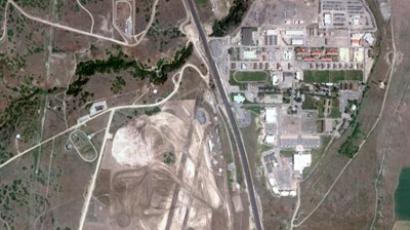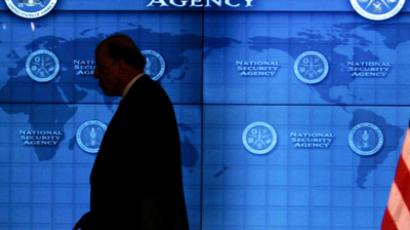NSA telephone, Internet spying data shared with British Intelligence

Data covertly collected by the US National Security Agency (NSA) from American telecom and Internet firms has been shared with its British counterpart, media reports revealed.
Britain’s Government Communications Headquarters (GCHQ) has been given information gathered in the US-run PRISM system, which grants the American spy agency a direct line to data stored on the servers of Google, Facebook, Apple, Yahoo and five other tech giants.
Documents obtained by the Guardian revealed that the GCHQ has had access to PRISM since at least June 2010, having generated 197 intelligence reports from it last year. Access to the information has allowed the British electronic eavesdropping and security agency to bypass the formal legal process required to obtain such information from a non-UK-based company.
Throughout PRISM’s seven-year existence, operatives at the NSA and FBI have collected email, video and voice chat, videos, photos, voice-over-IP (Skype) chats, file transfers and social networking details, with the ostensible purpose of thwarting terror attacks.
In a statement to the Guardian, the GCHQ insisted it "takes its obligations under the law very seriously." Apple, Google, Yahoo, Microsoft and Facebook have all publically disavowed knowledge of PRISM or any cooperation with the program.
The GCHQ was further provided access to so-called “telephony metadata” culled from the telephone records of millions of US customers of Verizon – one of the largest telecommunication companies in the United States – current and former US intelligence officials familiar with the operation told the Daily Beast.
Intelligence sources revealed that in a few cases, the NSA had shared unedited analysis of the metadata with the GCHQ. However, British nationals were reportedly not allowed to sit at the physical terminals where NSA analysts mined metadata.
“My understanding is if the British had a phone number, we might run the number through the database for them and provide them with the results,” said one former senior US intelligence official with knowledge of the program.
The Foreign Intelligence Surveillance (FISA) Court granted both the NSA and the FBI unfettered access to the metadata from April 25 to July 19 of this year. This data does not reveal the actual content of the telephone conversations or the names of the participants on either line, though the numbers dialed – as well as the time and duration of the calls – are included.
Late Thursday, James Clapper, Director of National Intelligence in the US, decried the leaks on the programs as “reprehensible.”
"The unauthorized disclosure of information about this important and entirely legal program is reprehensible and risks important protections for the security of Americans," he said.
Clapper further said that media reports surrounding the programs were rife with inaccuracies, adding that the collection of communications is allowed under Section 702 of the Foreign Intelligence Surveillance Act (FISA).
Since 1946, the US and the UK have been party to the United Kingdom-United States of America Agreement, which facilitates the sharing of signals intelligence between the two nations. The agreement was later expanded to include the commonwealth states of Canada, Australia and New Zealand.
On Friday, president Obama addressed the evolving revelations
over the PRISM program. According to Loz Kaye, leader of the UK
Pirate Party, Obama’s comments in defense of this online
surveillance flatly ignored the repercussions for foreign
nations.
“Obama’s comments today are
actually hugely disingenuous. He holds out that there is a choice
to be made between privacy and security, but the thing is if it’s
kept secret we have no choice. And also, if it’s directed at
those of us who are outside of the United States, what choice do
we have? I can’t vote in or vote out Obama, so we have no choice.
Who is going to stand up for us?” says














